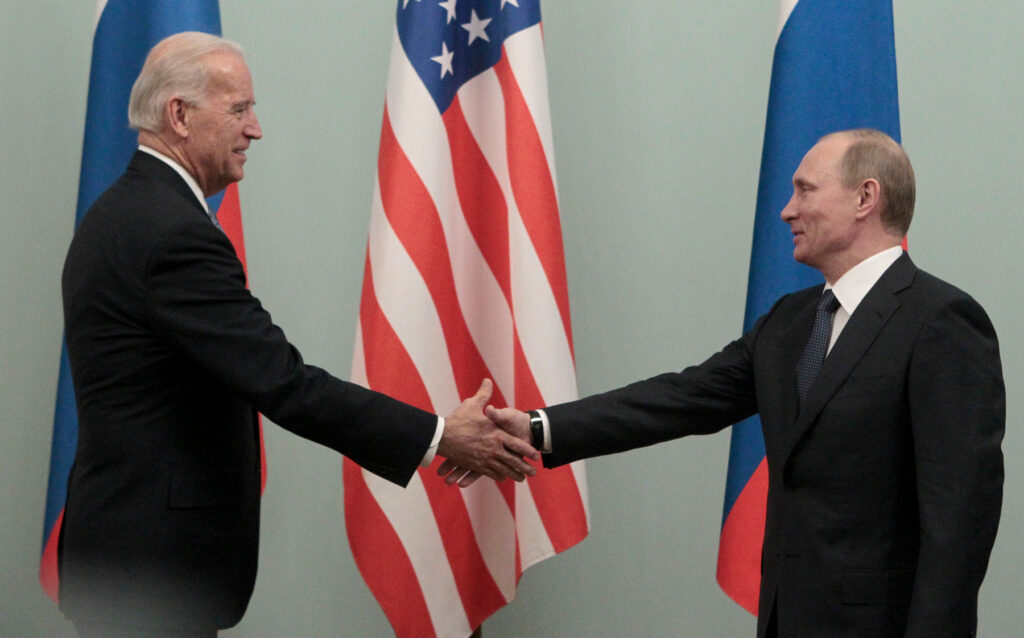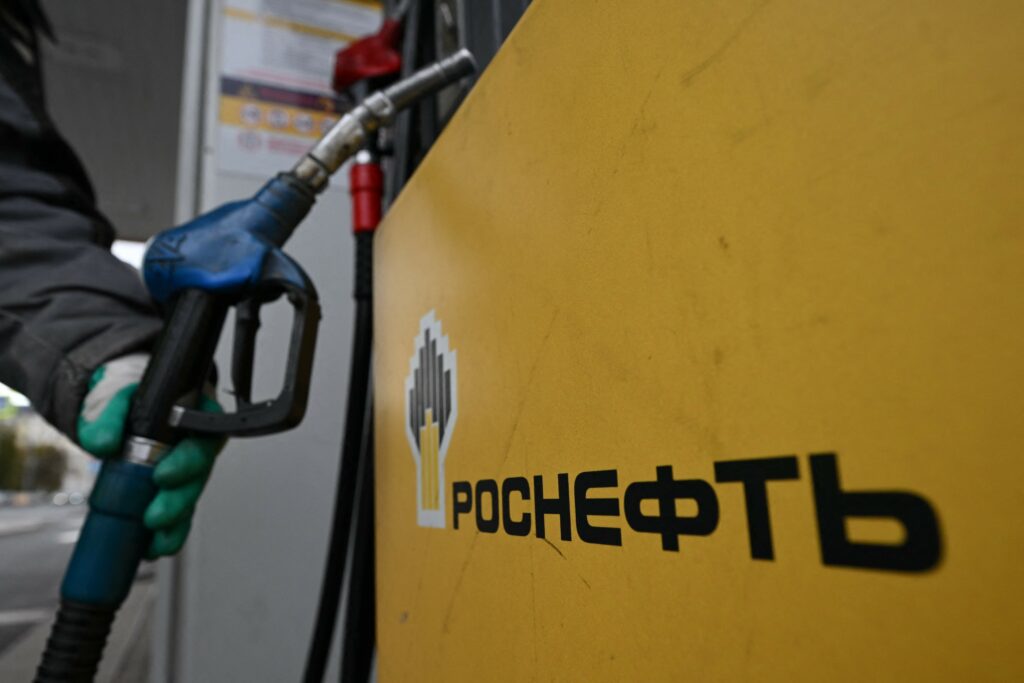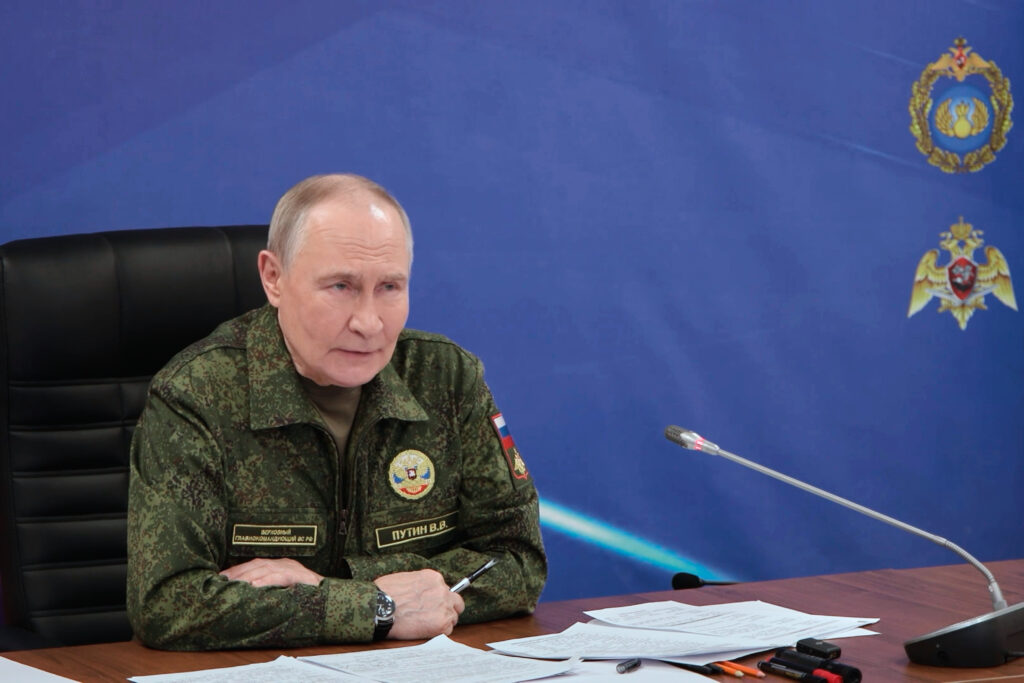Democratic presidential nominee Joe Biden is no stranger to Russia sanctions policy. Having served as vice president under Barack Obama, he played a key – if largely understated role in managing Russia relations between 2009 and January 2017. Yet this track record provides a mixed bag. Biden backed the attempted ‘reset’ pushed by then-Secretary of State Hilary Clinton. However, in the twilight of Obama’s presidency, he – as with other officials – had become hawkish on Russia.
Should Biden win the 2020 US presidential election, he is likely to resume a hawkish stance, even if his instincts may tilt to renewed diplomacy.
Biden’s own recent comments have made clear that he sees Russia as an opponent, a step beyond China, which he labelled a competitor, as he told a CNN town Hall in September. Russia’s interference in the 2016 presidential election and its continued attempts to undermine trust in the election, and Biden’s candidacy, mean that bar a concerted change in the Kremlin’s policy agenda on many fronts, the Biden administration is all-but-certain not to walk back the current sanctions regime.
It is clear Russia is not changing its tune on key issues of contention. The constitutional referendum approved earlier this year makes it impossible under Russian law for the Kremlin to hold discussions on Crimea’s status in any matter – and doing so would likely be untenable. That goes too for Russia’s non-systemic opposition, were it ever to come to power (an unlikely event in the next US presidential term). As a result, it is unlikely that any US president in the foreseeable future – even Donald Trump should he be re-elected – would unwind the Crimea sanctions, the genesis of the current sanctions regime.
Even so, a Trump second term could see sectoral sanctions loosened, or even Russian firms and officials removed from the specifically-designated nationals (SDN) sanctions list. Trump may have maintained and even expanded the sanctions regime in his first term. Re-election, though, would enable him to roll things back without a potential cost at the ballot box. This could help further his false narrative that the Russian interference claims were just an attempt to take down his candidacy. Besides, recent events have made it clear that a global effort to coordinate sanctions are no longer led by Washington. Over the last few weeks, the United Kingdom and European Union have sanctioned Russian officials over the attempted assassination of opposition leader Alexei Navalny.
Sanctions regimes have become a core feature of the international political order. How far Biden expands it will depend on events not just within Russia but on its periphery as well. Russia presently faces a wave of instability on its frontiers. Over Putin’s 20 years in office, the current challenges in its ‘near abroad’ are arguably second only to the days of the ‘colour revolution’ period of 2004-2005, where new forces shot to power in Ukraine, Georgia and Kyrgyzstan. As of the time of writing, Belarus remains in thrall of its largest post-independence anti-government protests; a new war has broken out between Armenia and Azerbaijan; Kyrgyzstan is undergoing regime change, whose nature–coup or a revolution – remains undecided.
Belarus’ opposition movement has attracted significant attention across the EU. While it has attracted less attention in Washington due to the fever pitch around the election, similar sanctions to those already introduced by the UK and EU would be all but guaranteed under a Biden Administration. Should Russia intervene more directly, it is likely that a Biden Administration would issue sanctions over this too.
Indeed, it was Russia’s intervention in Georgia that appears to have reshaped Biden’s own approach to Russia. On 18 August 2008 then-Senator Biden returned from a trip to Georgia following its war with Russia centered on the breakaway state of South Ossetia. He warned then that while he had “long sought to help Russia realize its extraordinary potential as a force for progress … that Russia’s actions “risk(ed) the country’s standing as part of the international community”. Five days later, Barack Obama selected him as his Vice Presidential nominee, in part due to his perceived foreign policy expertise.
This same expertise was tapped in one of Obama’s first foreign policy initiatives, a reset with Russia. While formally launched in March by then-Secretary of State Hillary Clinton together with a now infamous, perhaps fateful, mishap, the reset was actually first announced by Biden at the February 2009 Munich Security Conference. Later comments to the Wall Street Journal that July clarified that he saw the impetus as being on Russia to take corrective action to improve ties. He also noted that “I think we (the United States) vastly underestimate the hand that we hold,” adding how he saw that economic levers were how the US could shape Russia policy.
In that interview, which came after a trip to Ukraine and Georgia, Biden also specifically said that Russia should stop intervening in neighhouring (though he also refused to discuss new US arms sales to Tbilisi). The only other major comment Biden made on the reset, in a 2011 speech in Moscow, in which he did diplomatically praise the effort but also noted that the main continued disagreement, and source of hostility, was over the importance of democratic values and over whether Russia had a right to a “sphere of influence” in its near abroad.
A Biden Administration would abandon a Trumpian frenetic isolationism, likely seeking to restore US influence across the world, including in Eurasia. The US’ and wider West’s ability to intervene in Kyrgyzstan is limited. Its interest in doing so over Karabakh remains muted. Still, a Biden Administration would likely return to this same spirit of using economic levers – including sanctions – in response to any perceived Russian intervention.
Biden’s own advisors are arguably even more hawkish on Russia sanctions, in part due to their understandable anger at Russia’s intervention in the 2016 election. Many believe – myself included – that Trump’s election has done more to weaken the United States than any other single political event in the post-World War II era. And many of those who ascribe to that belief would therefore consider Moscow’s intervention on Trump’s behalf its most successful anti-American action, including all those taken during the Cold War. As a result, it is perhaps not unsurprising that key Biden foreign policy advisor and former National Security Advisor Jake Sullivan told Congress in 2017 that sanctions should be used not just as a way to hold Russia accountable for its actions but also a deterrent tool, calling for the proactive development of a menu of sanctions to be enacted if Russia takes certain actions, specifying that the financial services sector and Russia’s related institutions would be likely targets. While the context implied these could be used in response to further election interference, he did not specify whether other circumstances could warrant their use.
Others mooted as potential Biden picks for Secretary of State or National Security Advisor are also sanctions advocates. Tony Blinken has called for more overt opposition to Moscow and is on the record as on the more hawkish end of the Democratic Party spectrum for sanctions on Iran and China. Susan Rice told Congress in 2017 that the Obama Administration had prepared more sanctions than those implemented at the time, including ‘economic options that were quite a bit more potent than anything… thus far employed” before noting that “the one area where I have lingering questions in my own mind (is) about whether what we did was sufficient… on the economic sanctions piece”. Other Biden allies have explicitly backed such measures, perhaps most notably Michael Carpenter – former Deputy Assistant Secretary of Defense, managing director the Penn Biden Centre for Diplomacy and Global Engagement and also a director of the uber-hawkish Jamestown Foundation.
Aside from Biden’s own advisors, Congress is likely to remain broadly in favour of more sanctions – having already proven its willingness to push them under the Trump Administration with the 2017 Countering America’s Adversaries Through Sanctions Act. A Biden win would likely come with a Democratic House, and increasingly a Democratic Senate too (a 50-50 tie in the Senate sees the Vice President cast the deciding vote). The Democratic Party-aligned foreign policy non-profit Foreign Policy for America, which is extremely dovish on most military matters, has also supported passing more sanctions legislation targeting Russia.
Should Biden win the election, it may well give a signal on its sanctions policy early on. In January 2019, Russia’s Oleg Deripaska struck a deal to have sanctions lifted on his energy and aluminum firms, EuroSibEnergo, En+ and Rusal, in exchange for lowering his shareholding and appointing new independent directors to the firm. However, another of his companies – auto manufacturer GAZ – was not included. Yet in July 2020 the US Treasury struck a deal with GAZ to not only again extend licenses for businesses to continue ‘wind down’ deals with GAZ despite its designation but also for it to strike new business deals. Former sanctions official Brian O’Toole, now with the Atlantic Council, noted in response that while he had “authored or analyzed hundreds of general licenses and (he had )never seen OFAC use a continuation of a general license to dramatically expand the scope of authorized activity. O’Toole explained that one potential explanation was that a full deal to reduce Deripaska’s stake was in place but not yet announced but there has since been no development on this front. No explanation has subsequently been offered. However, there is one other notable feature of the relevant licenses issued by the US Treasury, 15L and 13O, namely their expiration date: 22 January 2021.
Should Biden win the election, he would be inaugurated on 20 January. Refusing to renew GAZ’s licenses within two days of taking office would signal that Biden intends to pursue a hawkish sanctions regime. While at present I would expect that the license will be extended by the Treasury beforehand, as the US presidential election enters its final stretch, the risk of a renewed major Russian intervention attempt is acute – and some have implied a new major effort is already underway. If Biden were to win anyway, it would make such an extension by OFAC extremely difficult. It would also significantly raise the likelihood that Biden starts his administration’s Russia policy not with an olive branch as he did when launching Obama’s reset, but rather with a heavy sanctioning stick.










